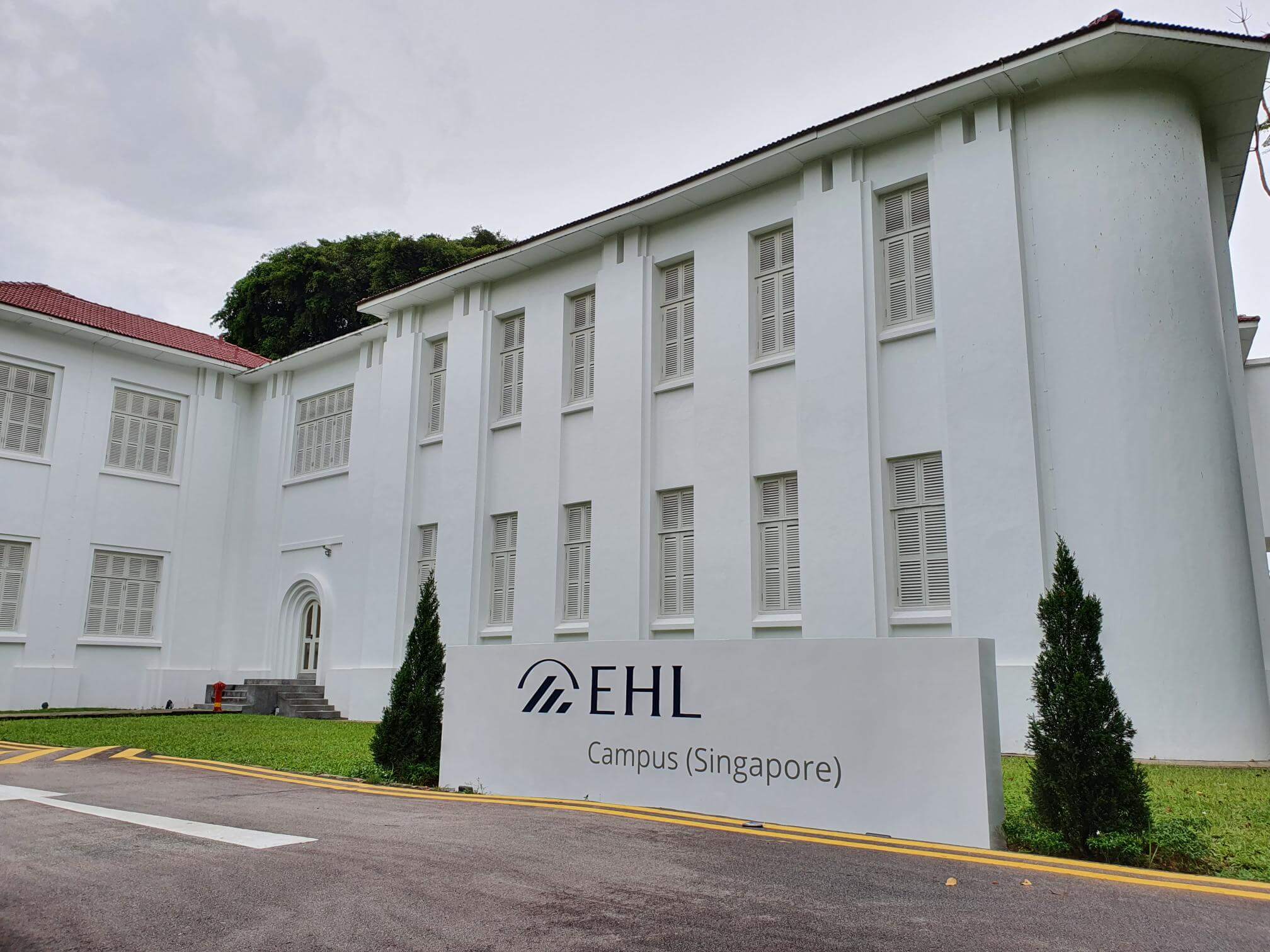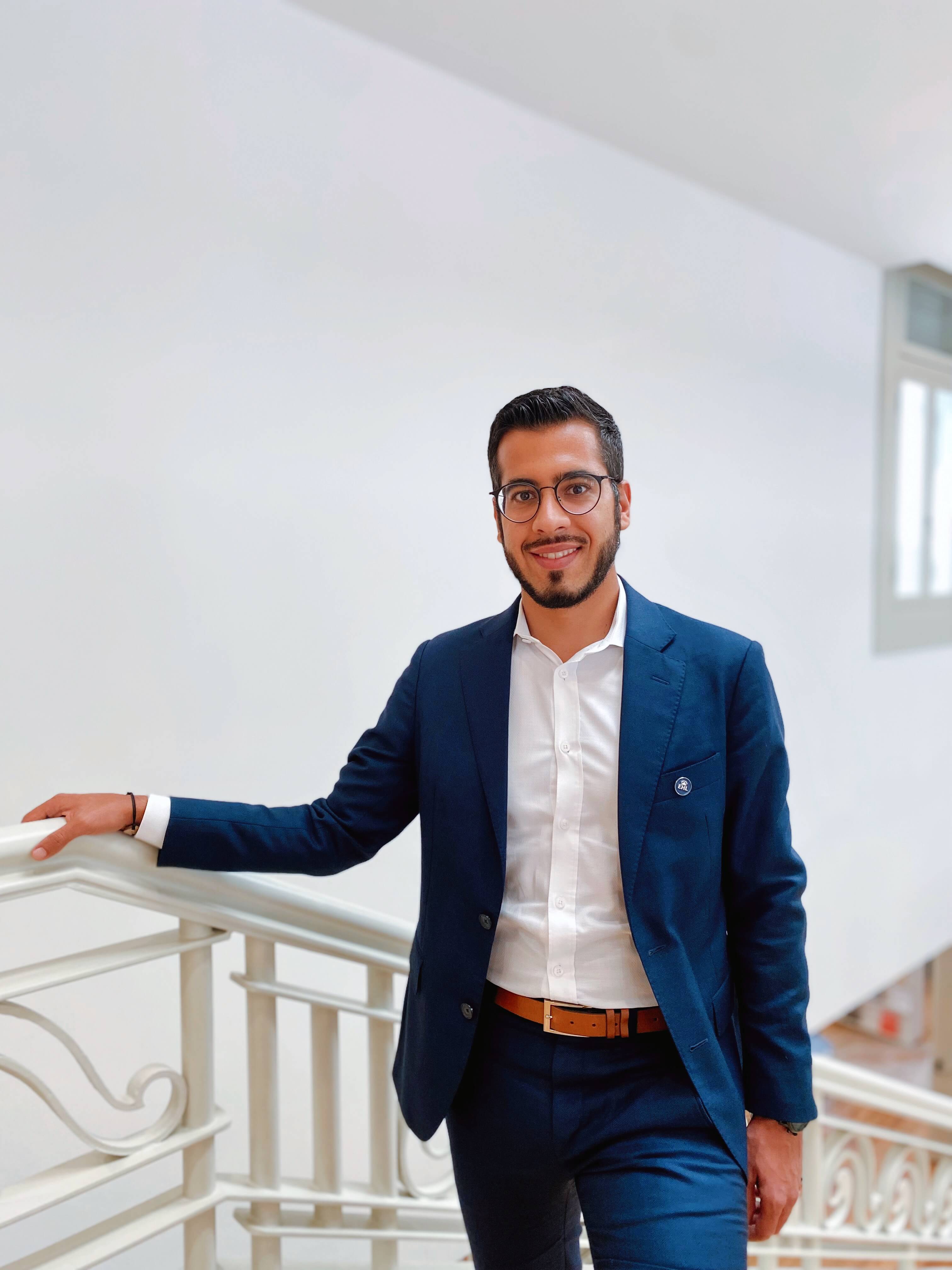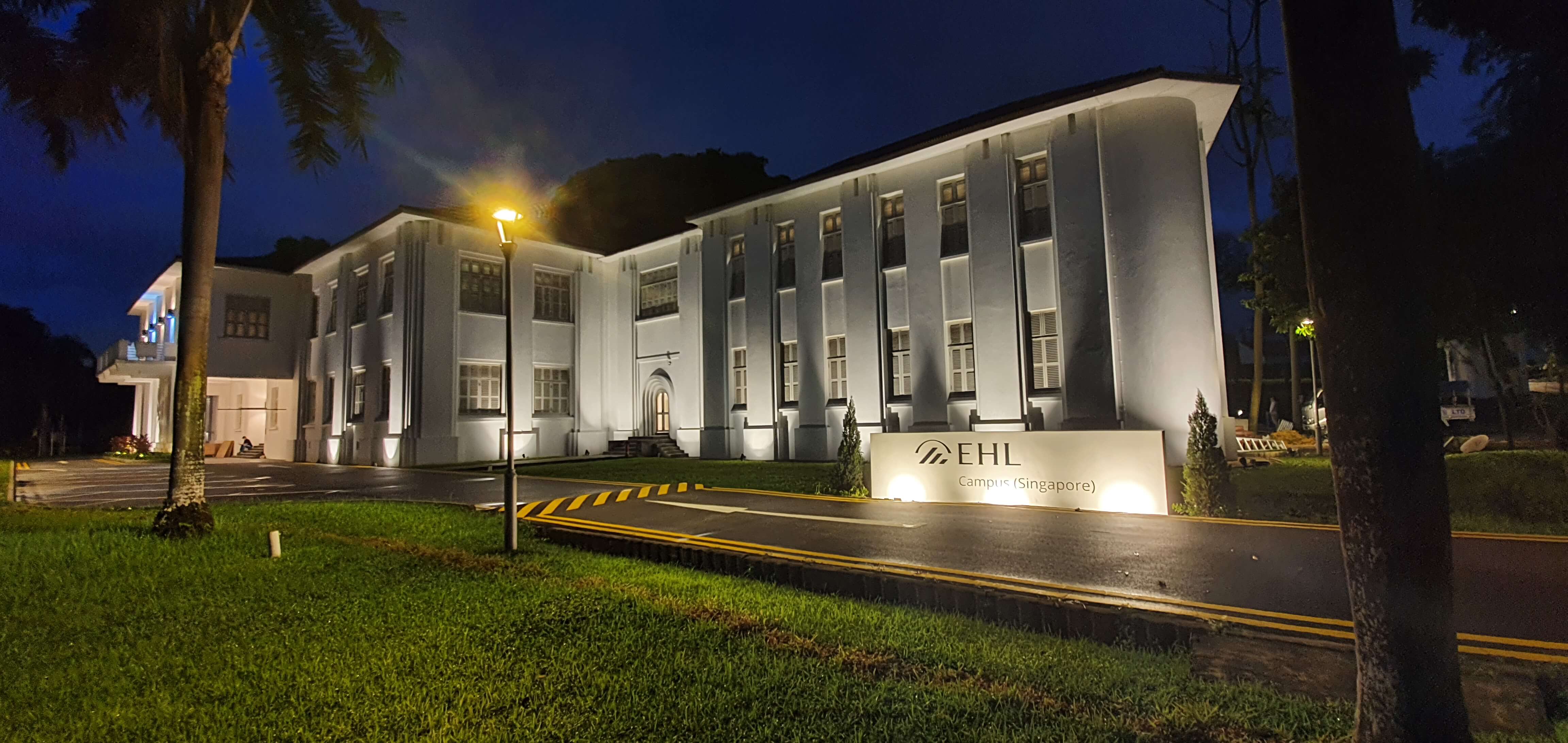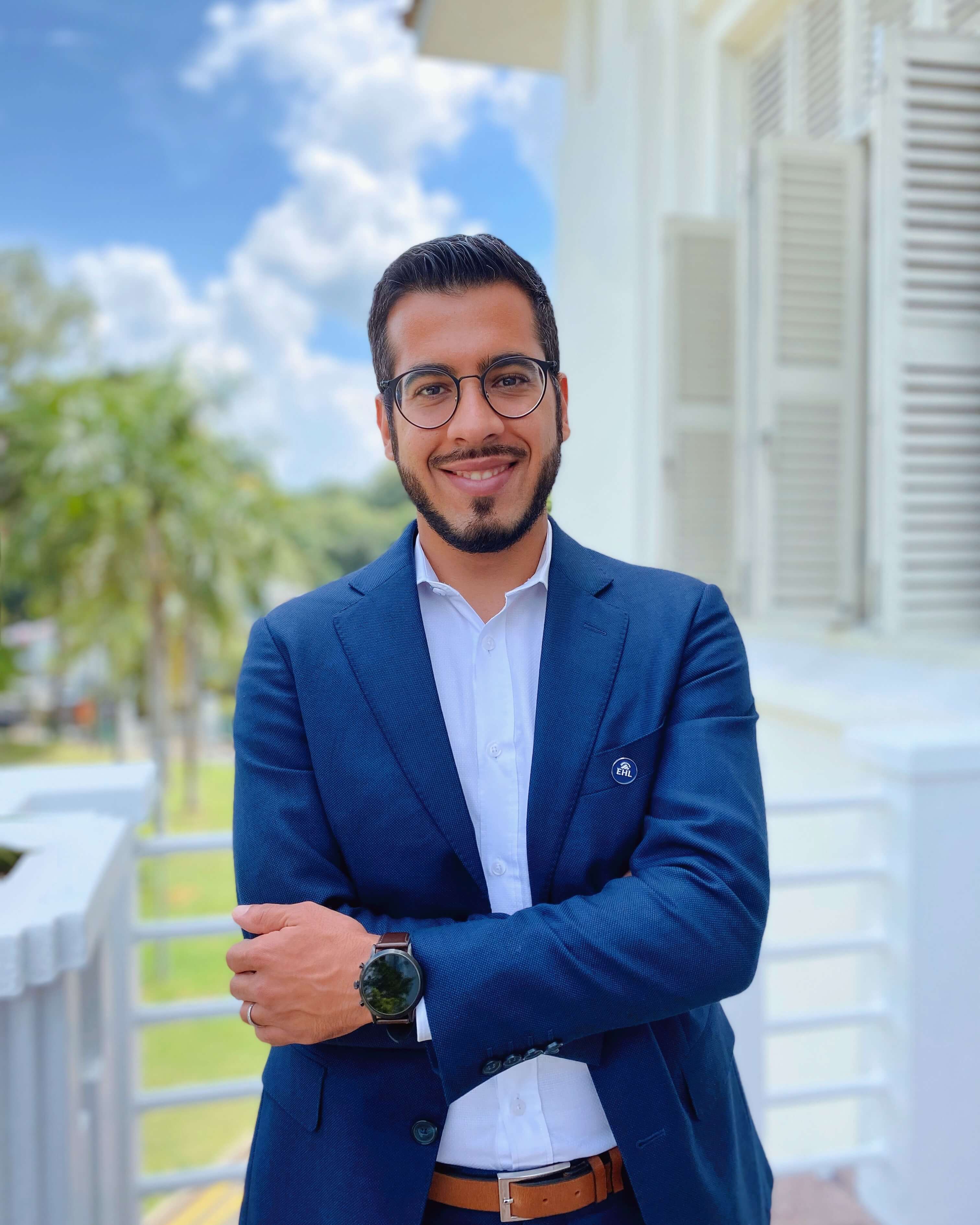Dr. Luciano Lopez has made a career studying and caring about people. In university, he selected economics and law as his major and acting as his minor. “In economics, you try to understand the behaviour of all actors present in an economy by analysing interactions and observing or anticipating the impact of shocks.”
Lopez would go on to complete a PhD in Economics at the University of Neuchâtel in Switzerland. During this stint, he joined Ecole hôtelière de Lausanne (EHL) Group, the world’s first hotel school, founded in 1893, as a guest lecturer in 2018 — a move that would come to define his future career.
In the same year, he was appointed as an assistant professor in EHL. This year, he became Dean of the EHL Campus (Singapore). “Bringing EHL’s academic excellence to Asia is a privilege and a mission that I look forward to undertaking,” he shares in a press release.
“Our ambition is to offer students a first-class education, combining pedagogical innovation, applied research and the daily commitment of passionate educators.”

“Singapore meets the growing demand for hospitality professionals in Asia, giving them a step-up in their careers in hospitality and beyond,” Lopez says. Source: EHL
Where does your interest in economics stem from? What’s the story behind this?
Excellent question. The first time I decided to take an economics class back in high school, it was purely out of curiosity. I actually selected economics and law as my major and acting as my minor.
Three completely different areas, one would think, but I disagree. All these three subjects are about people. In economics, you try to understand the behaviour of all actors present in an economy by analysing interactions and observing or anticipating the impact of shocks.

EHL chose to open a campus in Singapore as its “high standards in tourism and hospitality” made sense. Source: EHL
I sincerely believe that having a small amount of knowledge in economics will allow anyone to better understand our society and world. This is a real plus for the future of our planet.
Why did you choose to pursue your PhD in Economics at the University of Neuchâtel?
Like many high school students in Switzerland, I visited several unis before deciding where to go. What made me choose the University of Neuchâtel was the closeness between the faculty and students.
Even during the first year, we were probably not more than 100 students in a class. It may have seemed like a lot but compared to the 500 or 600 in other unis it was, to me, a strong comparative advantage.
I am a super curious person and I love to ask questions so this setup was ideal for me. Additionally, I must say that I truly love the city of Neuchâtel — a very authentic place. It’s worth noting that EHL also offers that close proximity between faculty and students which I still enjoy even now that I’m on the faculty side.
What about your career trajectory with EHL. Tell us more about it.
I started at EHL in 2018 as a visiting lecturer in economics whilst I was completing a PhD in Economics at the University of Neuchâtel. After I finished my studies, I joined EHL full-time as an assistant professor and taught at the Lausanne campus.
I then started my position as dean at EHL Campus (Singapore) this year. I’m very much looking forward to welcoming the students to class this month as well as working with the rest of the EHL Singapore team and the wider EHL Group.

The curriculum at EHL Campus (Singapore) will include Asian case studies and examples to ensure relevancy to local context and professional needs, according to Lopez. Source: EHL
Why did EHL Group choose Singapore as their first international campus?
Because Singapore meets the growing demand for hospitality professionals in Asia, giving them a step-up in their careers in hospitality and beyond. We go where the market needs us to be and our campus in Singapore will allow us to remain one step ahead.
This will be done through understanding, shaping, and stimulating the global hospitality industry as we have been doing for over a century. Singapore is a country well-known for its high standards in tourism and hospitality so it only made sense.
The aim in Singapore is to give the same high-class education as Switzerland. The curriculum at EHL Campus (Singapore) will be topped with Asian case studies and examples to ensure relevancy to local context and professional needs.
At the moment, we will start by welcoming some local guest speakers such as Steve Knabl (COO and managing partner at Swiss-Asia), Vivek Bhalla (vice president of operations in South East Asia and Korea at IHG), and Balthazar Pellissier (director of F&B operations at COMO Lifestyle).

“At EHL, we want to give our students a well-rounded, immersive education where soft skills are an important part of the curriculum just as much as quantitative skills,” Lopez says. Source: EHL
What soft skills are taught to students at EHL to help prepare them for the real world?
At EHL, we want to give our students a well-rounded, immersive education where soft skills are an important part of the curriculum just as much as quantitative skills. These soft skills are taught through a mix of experiential and pedagogical techniques through things like relationship management, emotional intelligence, and self-awareness.
All of these characteristics are needed in both a business and a social environment. They are also transferable from situation to situation and industry to industry. Soft skills are always a necessary asset for each and every person.
They can be viewed as character traits or interpersonal aptitudes that affects one’s ability to work and interact with others. Throughout the COVID-19 pandemic, such skills have been integral to the success of a company or an individual.
Traits such as resilience, empathy, communication, and adaptability have become increasingly important.
In a world of fast-paced digitisation, what are some key things you predict for the future of hospitality in Asia and in particular in Singapore?
Yes, I have no doubt that changes will occur. Technology is entering the value chain of many companies in the hospitality sector which leads to industry change in a positive way.
For instance, tedious tasks not requiring constructive social interactions (such as entering personal details in the system) could be externalised to robots. This will allow staff to increase the quality of interactions with customers by focusing on the true heart of hospitality which is social interaction.
Technology and digitisation will also undoubtedly enhance sustainable behaviours. Many studies have shown that consumers are increasingly worried about our current take-make-dispose consumption pattern.
Sustainability and circular economy are the topics of the next decades and I’m pretty convinced about that. Until recently, on the supply side, the cost of implementation was often mentioned as the reason why practices were not put into place.
Technology and digitisation, if used wisely, can decrease this cost drastically. However, to me, even if the short-run costs outweigh the benefits in the long run, everyone has a chance to win.
What skills or knowledge do you wish you had learned more of during your time at uni?
My uni time has been rather quantitative and that’s totally fine for me — I love numbers. The focus back then was to teach knowledge rather than to share (a bit more of the latter would have been welcome).
What I mean is, you can be a genius in your domain but if at the end of the day you’re not able to share your knowledge, what is the point? I know unis are meant to revolve around hard skills but being able to share what you know is crucial.
What’s your advice for prospective hospitality students?
Fall in love with diversity because hospitality or services in general, are people-centric. There are thousands of different cultures out there and our world is a puzzle.
If you only have one piece in your hand (representing one culture), there’s nothing exciting to it. Once you solve the entire puzzle by finding a place for each piece (culture), it’s when you’ll discover the true beauty.
Where do you envision yourself in 10 years?
Carpe diem! I have a very clear mandate for the next four years and all my focus and energy is there. Then, who knows, EHL Group has plenty of possible options!
Lastly, tell us why you love Singapore:
Easy, I love the people, the food and the weather. Singapore is a multicultural country where everyone lives in harmony with each other. No matter the religion, culture or race and I find this truly pleasant.
The food, needless to say, is absolutely fantastic. You have all the diversity you could ever want with plenty of possible combinations of spices and cooking styles. Hawker centres are a wonderful discovery and I’m a big fan.
Last but not least, people who know me are well aware that I would rather wear shorts all year long over a coat. The weather in Singapore is great even though I was slightly nervous about the humidity before arriving. One thing though, if it’s shining bright outside and you go for a walk, take a cap and an umbrella as the rain can be just around the corner.
From a PhD in Economics to dean of Asia's top hotel school - Study International News
Read More
No comments:
Post a Comment